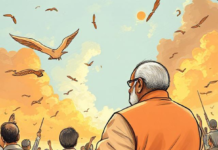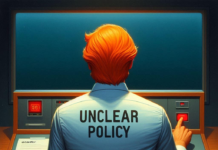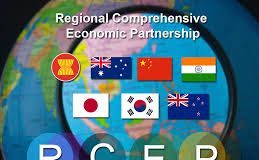INVESTMENT PERSPECTIVE
By J Mulraj
Aug 28-Sep 3, 2022
The multiple risks investors shouldn’t ignore
If globalization means ease of international trade, it started with Columbus’s discovery of America. It got impetus after WWII, when the US, with the only large navy still intact, guaranteed freedom of navigation (no piracy) for nations in return for siding with it against Russia. In so ensuring, the US has over 750 military bases, worldwide, and a defense budget larger than the next seven countries, combined. Globalization became a buzzword after the 2005 book ‘The World is Flat’, by Thomas Friedman. Technological advancements in telecommunication and in computation, made outsourcing work, especially of services, possible. Hence the description of the world being flat.
This was followed by outsourcing of manufacture, especially to China, which was efficient in low cost production, besides to other countries. Assets under management of financial institutions, globally, exceeds $100 trillion, and they push corporate management towards cost reduction, hence higher profits. Global outsourcing is a cost reduction effort.
The advent of Covid exposed the frailty of the extended global supply chain. Accidents, like the ship, Ever Given, getting stuck in the Suez Canal, and delaying several others, exposed the fragility of the supply chain further. Alarmingly, a Singaporean vessel, Affinity, got stuck a day ago, in the very same spot! We don’t learn lessons!
The Russian invasion of Ukraine, which was totally avoidable and could have been handled through diplomacy, has further disrupted European energy supplies. The utter foolishness of the war is evident; not only is it a humanitarian disaster, but it’s also a geopolitical disaster (it has driven Russia and China, viewed as America’s two biggest threats, together) and an economic disaster (costly pipeline infrastructure to Europe is unused, new pipeline plus liquefaction/regassification infrastructure is being built in Russia and China and in Europe. Meanwhile, unsold Russian gas is being flared, further damaging the environment.
So, today, Thomas Friedman may well write ‘The World is Bumpy’.
The world needs global trade, as dictated by the theory of competitive advantage, with each country making what it’s good at, and trading for things it’s less adept at. The increased use of solar energy, eg, will make the world more dependent on China for supply or lithium, used for energy storage, as will the push towards electric vehicles. California has just mandated a fossil-fuel free state by 2035. The world still needs supply of fertilizer from Russia and China, and of wheat from Russia and China.
More importantly, all countries need to communicate on important issues like climate change, nuclear disarmament and military communication. The need to smoother bumps is imperative.
Last week, the BSE Sensex lost 30 points to end at 38803.
There are several factors for investors to bear in mind.
Over the past week, the price of Brent crude has dropped, and is now around $94/ b. This is mainly due to reduced Chinese consumption, thanks to the insistence by an obdurate Xi, to continue with his zero tolerance to Covid policy. This has resulted in a shut down of manufacturing units, and a reduced demand for crude. Crude oil price can fall further if the Iran nuclear deal is renegotiated and Iranian supply comes to market.
In addition to the man made disaster of a foolishly ineffective policy, China is simultaneously reeling under the consequences of the natural disaster of drought. This, in turn, affects production of hydro power, which contributes 18% of its electricity supply. Lower electric supply will translate to lower industrial production, and China’s GDP will be adversely hit. The silver lining? In Q2, China’s carbon fell 8%. Maybe God is sending a message to mankind, to slow down its wasteful consumption.
If China growth slows, so will it’s demand pull for commodities. On the other hand, Chile is also reeling under severe drought. It produces 28% of the world’s copper, an energy intensive industry. Reduced supply will push up its price.
US Fed Chairman, Powell, expects inflationary pressures to continue, and has warned of stern, and continuing, measures to tame it. What a difference a year makes! Through 2021 he insisted inflation was transitory, and adhered to an easy money policy. he ought, really, to have started ending QE earlier.
Stockmarkets are now facing the twin cudgels of higher interest rates, and QT, or quantitative tightening. (Nothing cutey about it). Credit markets will be squeezed, making borrowing both difficult and expensive. Start ups are already feeling the pinch of tight liquidity.
Powell’s task, at the Sep 20 meeting of the Fed, will be tough. Prices of crude oil would, in all likelihood, have dropped, especially if the Iran deal is signed. On the other hand, prices of commodities may rise due to reduced supply. Prices of food will certainly rise, and will create social unrest. Another hike of 75 basis points might be expected.
Another factor impacting US markets negatively, is demographics. The Baby Boomers generation has reached retiring age. upon retirement it’s normal to reallocate some savings from a fluctuating equity portfolio to a more stable and safer Government bond portfolio (everyone is not a Warren Buffet). This would raise cost of capital for US companies, in addition to higher interest rates and QT. The next generation are the Millenials, who are, typically, choosy about work. That is the reason for work shortage in USA, which would continue.
India sits in a pretty spot, recognised by foreign investors, who are returning in droves, propping up the market. Despite expected global food shortage, the Indian Government has done a commendable job in procuring 88 m. tonnes of rice and 19 m. tonnes of wheat. India’s GDP grew 13.5% in Q1, which looks impressive due to the effect of a low base as Q1 of last year saw a partial shut lock down in phase 2 of Covid. SBI has lowered full year GDP growth forecast to 6.8%.
It seems as though global markets would be impacted by continuing inflation, rising capital costs due to interest rates and demographics, credit shortage due to QT, and supply chain disruptions due to the war in Ukraine and the zero tolerance policy in China. A flare up over Taiwan might be the match that lights the powder keg. Xi Jinping is likely to get a third term confirmed n October and one prays he doesn’t celebrate it with a Taiwanese misadventure.
the India story is, of itself, good, but it, too, would be impacted by any serious drop in global markets.
Picture Source: https://miro.medium.com/max/460/1*lmNaJKxqsdnaZvnvdjD7Lw.jpeg
Comments can be sent to jmulraj@asiaconverge.com










































COMMENTS